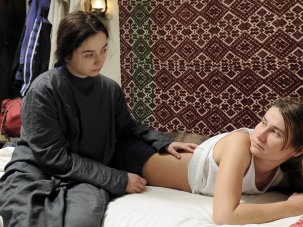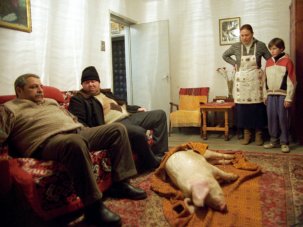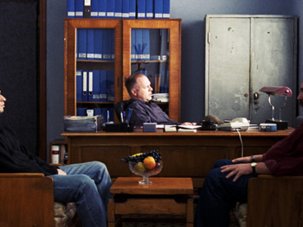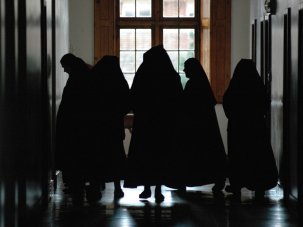from our April 2013 issue
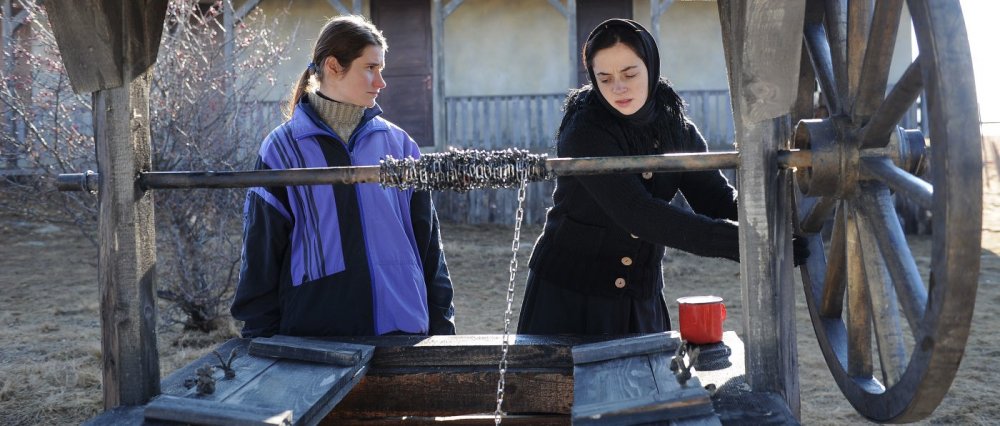
Romanian director Cristian Mungiu’s third feature takes several confident steps towards the mastery that his second, 4 Months, 3 Weeks and 2 Days (2007), revealed to be within his grasp, thematically and above all stylistically.
|
Romania/France/Belgium 2012 Crew Cast Dolby Digital Distributor Artificial Eye Film Company Romanian theatrical title Dupa dealuri |
The new film is set 15 years later – sometime after the introduction of the euro in 1999 but before devaluation and Romania’s entry into the EU in 2007 – and confirms Mungiu as a humanist with an approach very similar to spiritually inclined directors such as Bresson and Tarkovsky, with whom he shares certain key stylistic preoccupations.
Above all, both films are carefully structured, 4, 3, 2 around the notion of time (as in the title), Beyond the Hills, again as the title implies, around the idea of place – or rather the contrast between different places: between Romania, where the story is set, and Germany, the locus of flight, freedom (or at any rate greater opportunity) and decadence. Then there is the opposition between the town, with its everyday concerns and laissez-faire attitude, and the isolated monastery, first seen looming over the horizon in a virtuoso tracking shot as two young women approach this place “beyond the hills”.
Both films have two female protagonists, one stronger than the other, confronted with a patriarchal figure (there Mr Bebe, here Papa, the leader of the monastery’s austere religious community). There are stylistic similarities too: Beyond the Hills opens with Mungiu’s trademark back-of-the-head shot as one of the girls, Voichita, pushes her way through the crowds at a railway station to find her friend Alina. The women grew up together in an orphanage, and now Alina has returned after several years in Germany; she hopes to take Voichita away with her, but the latter is fully committed to her life at the monastery.
Beyond the Hills is a much more complex and ambitious work than 4, 3, 2, championing love and questioning religion’s attempt to appropriate it by labelling it divine. Most striking here is the restraint with which Mungiu handles what turns out to be a story of religious fanaticism, murder, demonic possession and repressed sexuality (which, according to a tiny mention in the end credits, is based on real events). Thus while the plot summary may suggest that fashionable subgenre, the ‘real-life’ exorcism movie, we are a long way from The Exorcism of Emily Rose (though closer, at times, to Hans-Christian Schmid’s more restrained, German-set Requiem, based on the same occurrences). The potentially horrific binding of Alina to a cross-shaped stretcher in the climactic exorcism scene has a matter-of-fact, almost farcical tone as the nuns struggle to hold her down – “Tie her with this!” “This one’s too short!” “Try this!” “It’s no good: I can’t hammer with her like that!” – rather as though the crucifixion were being re-enacted by the Marx Brothers (though any humour abruptly evaporates when the chain used to tie up a dog is wrapped round Alina).
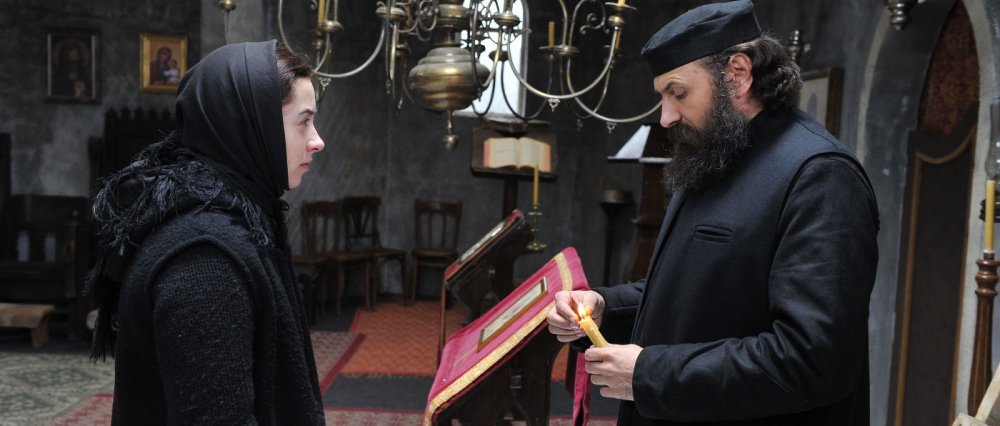
Whether or not Alina is demonically possessed or mentally ill is never explored. Nor are the sexual implications of Papa’s hold over the girls – does he indeed “fuck” them, as Alina suggests? Nor the hint of sex trafficking that goes with the mention of the mysterious Herr Pfaff, who used to visit the orphanage from Germany, took photographs and left Alina a camcorder. Elements like this provide the film with a rich backstory but no hint of motive or cause.
Instead, Mungiu’s unblinking focus is on the love between the two girls, clearly (though never explicitly) sexual, pitted against the much more powerful and codified love of God, with which Alina cannot compete. “If I let God into my heart, will you start loving me again?”, she asks Voichita in one of the film’s key scenes. But although there is a clear sense of Alina and Voichita as fragile free spirits crushed by a religion that helpfully provides its adherents with a menu of 464 sins to choose from, there is no real attempt to demonise Papa, who seems for most of the time to be genuinely trying to find a solution to this troublesome cuckoo who has shown up in his nest.
The temptation to make the girls straightforward victims is likewise avoided. Alina comes across as surly and confrontational, Voichita as genuinely comfortable in her faith. And there is a beautiful little scene in the hospital after Alina has been pronounced dead by a doctor who might function as the voice of scientific reason but seems, instead, more interested in her mobile phone. “God help anyone who falls into your hands,” she says to the community’s ‘Mother’, who comes right back with, “God forgive me, but the same goes for you doctors.” No one other than Voichita, meanwhile, seems to care much about Alina.
Following a measured pace with occasional flurries of violence, Beyond the Hills is a scrupulously neutral look at events which flare up in a world that is, at base, indifferent. And Mungiu’s great achievement is to hold these two concepts – love and indifference – in balance, nowhere more skilfully than in the film’s final shot, one of the most eloquent and perfectly orchestrated in cinema history.
-
Sight & Sound: the April 2013 issue

In this issue: Danny Boyle, Kristin Scott Thomas, Carlos Reygadas, Point Blank and Beyond the Hills.




